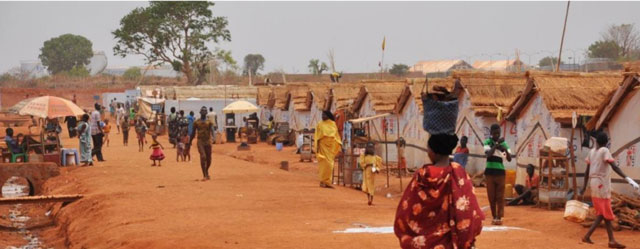
Koboko, Uganda | THE INDEPENDENT | After fleeing armed conflict in South Sudan and the Democratic Republic of Congo, several single refugee mothers now living in Uganda’s West Nile region are struggling to make ends meet following the loss of their families’ breadwinners.
While life in the camps initially began on a relatively manageable note, the situation has deteriorated drastically due to reduced food aid and dwindling financial support, which currently stands at just UGX 12,000 per household.
As hope fades, some refugee mothers have opted to leave the settlements in Lobule and move to Koboko town in search of casual work and small business opportunities, only to encounter the harsh realities of urban life.
Salima Mayunga, who fled war in Kisangani through Goma in DR Congo in 2003 after her husband was killed, initially settled in Lobule with her four children. But the worsening conditions in the settlement recently pushed her to relocate to Koboko town.
Speaking in Kiswahili, Salima said she and other women face high rental costs and expensive school fees, making survival difficult in the urban setting.
Similarly, Kahambu Makile, a Congolese refugee and single mother of three from Goma, has been living in Waju settlement for over a decade. She moved to Koboko for better prospects but says life has only grown harder.
Now staying with her younger sister, Kahambu said they rely on casual labor, such as digging and fetching water for locals,, such as digging and fetching water for locals, to buy food. At times, they are forced to sleep hungry.
Rose Mary Ariye, a South Sudanese refugee and single mother of five, also faces mounting challenges. She said the burden of rent for housing and land, coupled with school fees and inadequate food, has made life extremely difficult.
Following the aftermath of COVID-19 and the withdrawal of several donors, food aid has been significantly reduced. As a result, dozens of South Sudanese and Congolese refugees have left the camps in search of better opportunities in urban areas of West Nile — only to be faced with new obstacles like limited income and increased costs of living.
Their growing presence in towns has also led to additional pressure on local governments and existing social services, straining already stretched resources.
*****
URN
 The Independent Uganda: You get the Truth we Pay the Price
The Independent Uganda: You get the Truth we Pay the Price



